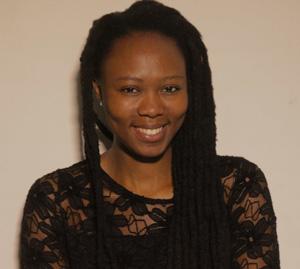Checking for Word on Nelson Mandela
Ntshepeng Motema (Photo courtesy of Ntshepeng Motema)
Every time Nelson Mandela goes back to the hospital, I cannot help but worry his time has come. At 94, Mandela, he keeps getting lung infections — complications from the tuberculosis he contracted during his 27 years in jail.
For us South Africans, Mandela is not just our former president. He’s a beloved grandfather, a protector, and a symbol of what’s best about our country. We name everything after him. The Mandela Bridge, The Mandela University, The Mandela Children’s fund, The Mandela Soccer Cup. I mean, the man’s face is even on our money.
My mother tells me to feel grateful to have grown up in a free South Africa. I was 10 when Mandela became president. Before then, my mother had to travel with her passport everywhere she went. The police would stop her when she went to places reserved for white people. She went to blacks-only schools, blacks-only restaurants and did hard labor, a blacks-only kind of a job.
I didn’t go through any of that. I went to a multi-racial school. I can go to any part of my country without restrictions. Blacks and whites live side-by-side, in harmony.
Or at least, so it seems on paper. Sadly, almost twenty years on, South Africa remains divided. Racism has left the restaurants, but it’s alive at the dining room table. Behind closed doors, blacks say “White people have such a sense of entitlement. They forget that this is our land, and we could kick them out any time.” And I’ve heard white people say, “Black people are such savages, their government is corrupt, and I’m thinking of moving away.”
And then there’s the economic inequality. Wealth still remains in the hands of the white minority and a small black elite while the rest of the country is poor. Resentment bubbles under the surface and violence threatens to explode. Many fear that once Mandela is gone, his rainbow coalition will fall apart, whites against black, rich against poor. And what scares me is that, these days, we do not have the kind of leaders that can hold the country together.
Mandela may not be with us for much longer. And I would hate if something happened to him while I’m so far from home. I want to be able to hold hands with my countrymen when his time comes. But, then again, I think Mandela would want me to be here, in New York City, taking advantage of the opportunities he spent his life fighting for. So I’ll keep checking the newswires, texting my friends, calling my mom, desperate for the news I hope will never come.
Our coverage reaches millions each week, but only a small fraction of listeners contribute to sustain our program. We still need 224 more people to donate $100 or $10/monthly to unlock our $67,000 match. Will you help us get there today?
